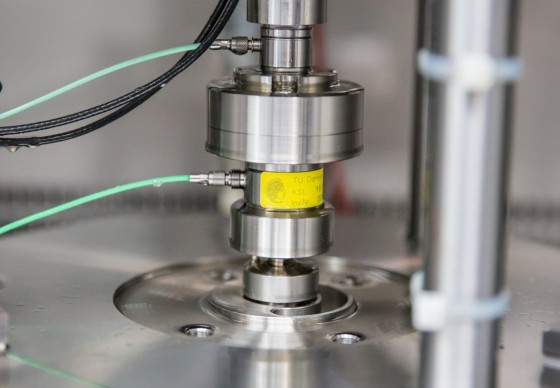Inbetriebnahme und Kalibrierung des Slip Length Tribometers (SLT) zur Untersuchung des Einflusses der Oberflächenrauheit auf den Wandgleiten
Commissioning and calibration of the slip length tribometer (SLT) to investigate the influence of surface roughness on wall slip
Masterthesis, Bachelorthesis, Advanced Design Project (ADP)
In the field of fluid mechanics, the no-slip boundary condition is a long-established and widely accepted principle. While it applies across a broad range of technical disciplines, both experimental and simulation-based studies have highlighted its limitations. The phenomenon of wall slip – the relative motion between a boundary surface and the adjacent fluid – contradicts the traditional no-slip assumption and becomes particularly significant as the fluid film thickness decreases.
This effect is especially relevant in technical applications involving narrow gaps, such as journal bearings and hydraulic seals. In such cases, the slip lengths observed for metal-lubricant interfaces are typically in the sub-nanometre range.
To investigate the wall slip phenomena, the Slip Length Tribometer (SLT) was developed at the Chair of Fluid Systems. It has been shown that slip length is influenced by various physical parameters, including temperature, surface roughness, lubricant type, and others. However, the specific influence of these factors – particularly within technically relevant regimes – remains insufficiently explored.
Tasks
As part of this project, the Slip Length Tribometer (SLT) is commissioned and calibrated. The student learns how to operate the experimental setup and develops a calibration program, for example using LabVIEW. Three experimental series are conducted using samples with different surface roughness. The aim is to systematically investigate the influence of surface roughness on the slip length.
Preparations
- Interest in experimental work and calibration (ideally with experience in LabVIEW)
- Interest in fluid mechanics and the phenomenon of wall slip
What do we offer?
- Insights into the research topic and hands-on experience with experimental work
- Introduction to data processing methods and Research Data Management (RDM)
- Close involvement in the current research process, including comparisons with in-silico experiments
The scope and difficulty of the tasks will be adjusted to the type of thesis/project. If you have any questions, feel free to contact me by phone or email.


